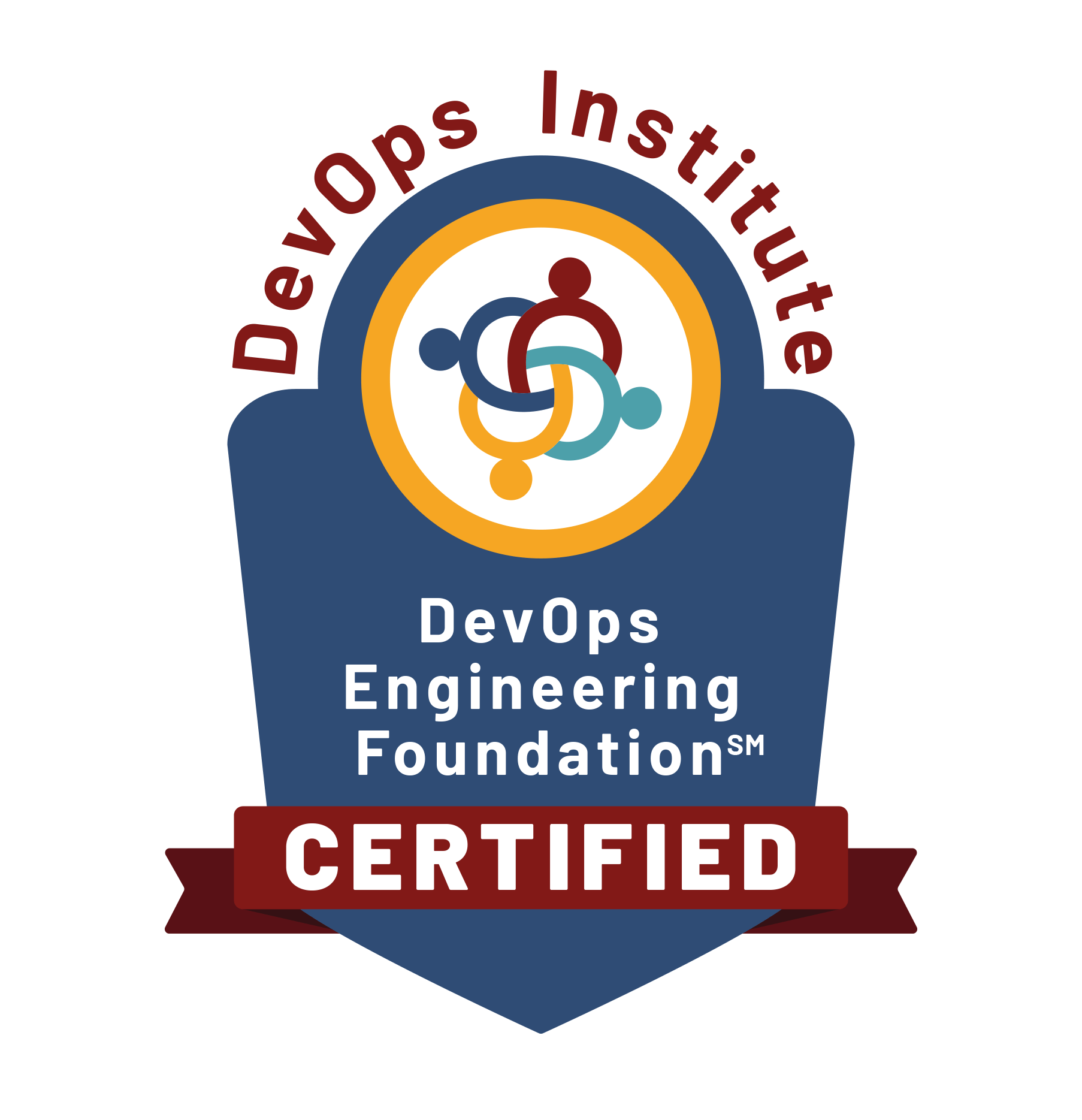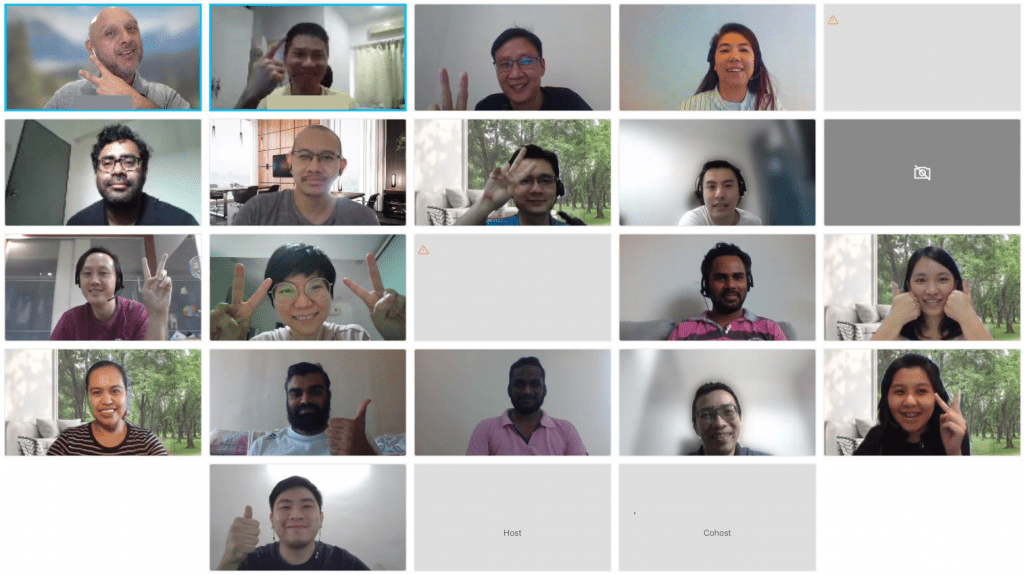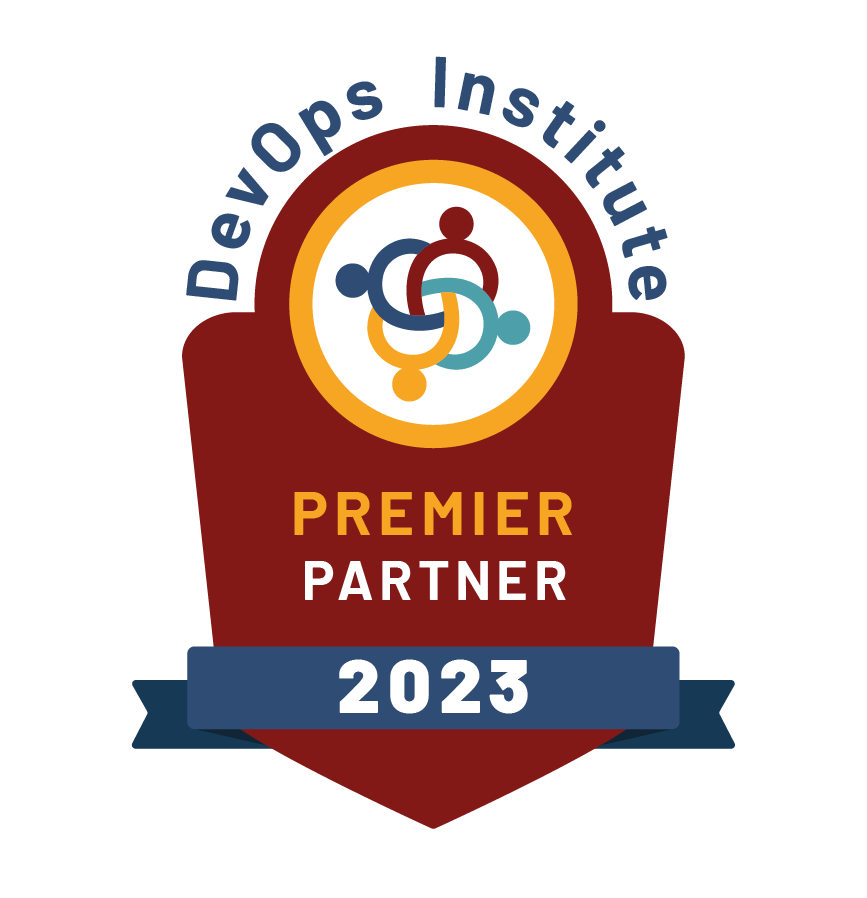DevOps Engineering Foundation

The all-important technical direction for a successful DevOps journey
An in-depth look at the implementation process of DevOps from an engineering perspective with insights on the significant aspects of engineering DevOps.

Our recent virtual class! In support of safe management in light of COVID19, classes may be run virtually.
Introduction
Course duration: 3 days, 9am – 5pm
Learn from what is DevOps Engineering and how DevOps is engineered for success to DevOps foundation principles and the transitions into implementing DevOps.
The course is designed from an engineering point of view and covers topics such as DevOps in relation to other frameworks, technologies, application design practices, continuous integration practices, continuous delivery and deployment, continuous testing, elastic infrastructures, monitoring, metrics, observability, governance, human aspects, and future trends of DevOps engineering.

DevOps Premier Partner
Sapience’s Accredited Trainers have gone through a vetting process with DevOps Institute, and official material will be provided.
DevOps can be a complex maze that has many leaders frustrated. Many enterprises struggle with their DevOps journey, or even knowing where to start. There are many layers of people, process and technologies across each organization that are instrumental to engineering a successful DevOps implementation. DevOps is an evolving journey.
This course explains the many aspects of DevOps engineering that leaders and practitioners can execute upon. While DevOps Foundation provides an overview of DevOps, this course will provide a closer look at the implementation process from an engineering perspective. It is an in-depth view of the major aspects of engineering for DevOps. This engineering approach is critical to any DevOps journey.
This course provides the foundations of knowledge, principles and practices from a technical perspective needed to engineer a meaningful and successful DevOps solution for your organization.
This course may be eligible for PMI’s PDUs.
- DevOps Engineering Introduction
• DevOps Foundations
• Principles and Practices
• Related Frameworks
• Performance and Benefits
DevOps Technology
• Source and Artifacts Control
• CI/CD pipelines
• Tools and Toolchains
• Application Release Automation
• Value Stream Management
Applications Architectures and
Continuous Integration
• Application Architectures
• Containers
• Continuous integration
Continuous Testing
• CT Tenets
• Test creation & TDD
• Test acceleration
• Test results
• Test management
• Test environment management
Ephemeral Elastic Infrastructures
• Virtual and Cloud
• Configuration management
• Infra-as-code
• Containers Orchestration
• GitOps
Continuous Delivery and Deployment
• Continuous Delivery and Deployment
• Release Automation
• Deployment Strategies
Metrics, Monitoring, Observability,
Governance
• DevOps Metrics
• Monitoring
• Observability
• Governance
DevOps Engineering Humans • Culture
• Team Topologies
• Continuous Learning
• Future DevOps Trends
On completion of this course, understanding of the following areas will be achieved:
- How to engineer DevOps solutions
- DevOps Technologies
- Applications Architectures
- Continuous Integration
- Continuous Testing
- Ephemeral Elastic Infrastructures
- Continuous Delivery and Deployment
- Metrics, Monitoring, Observability and Governance
- DevOps Humans
- Future Trends
The target audience for the DevOps Engineering Foundation course are
individuals involved in engineering and technical practices, including :
- DevOps Practice owners and process designers
- Developers, QA engineers and Managers who are interested in understanding how DevOps works.
- Employees and managers responsible for engineering or improving processes.
- Consultants guiding their clients through process improvement and DevOps initiatives.
- Anyone responsible for:
- Managing process-related requirements
- Ensuring the efficiency and effectiveness of processes
- Maximizing the value of processes
Participants who successfully complete the course and pass the examination will be recognized as certified with DevOps Engineering Foundation issued by DevOps Institute. Delegates who do not attain a passing score for the examination would be awarded a course attendance certificate only.
EXAMINATION FORMAT
- 40 Multiple Choice
- 1 mark per correct answer
- 26 marks required to pass (out of 40 available) – 65%
- Sixty minutes duration
- Web-based open-book examination.
There are no prerequisites to attending the DevOps Engineering Foundation course or sitting the DevOps Engineering Foundation certification examination. Some understanding of DevOps processes and Agile will be beneficial.
Complimentary refresher
Participants can attend a complimentary refresher if they wish(1-year validity and subject to approval)
Post-training support
Should you have questions after the course, you may contact the trainer for assistance regarding course material
E-learning portal
Get one year access to our e-learning portal, including related e-books available for download, an official DevOps Institute sample exam and a randomised quiz formulated by Sapience Trainers based on past examinations
Trainer profile
Feisal Ismail
Extensive technical and managerial experience supporting organisations across government, pharmaceutical, banking and financial industries. Well-versed in creating and leading high-performing teams through effective work methodologies thatleverages on technology and best practices to achieve organizational objectives.
Communicative, articulate and a firm believer in sharing both knowledge and experience. Highly organized and relish delivering superlative results in high-pressure environments. Believes in providing quality advice grounded in a sapient application of experience, best practices and an acute understanding of real-world realities.
Clients can count on me – my word is my bond.